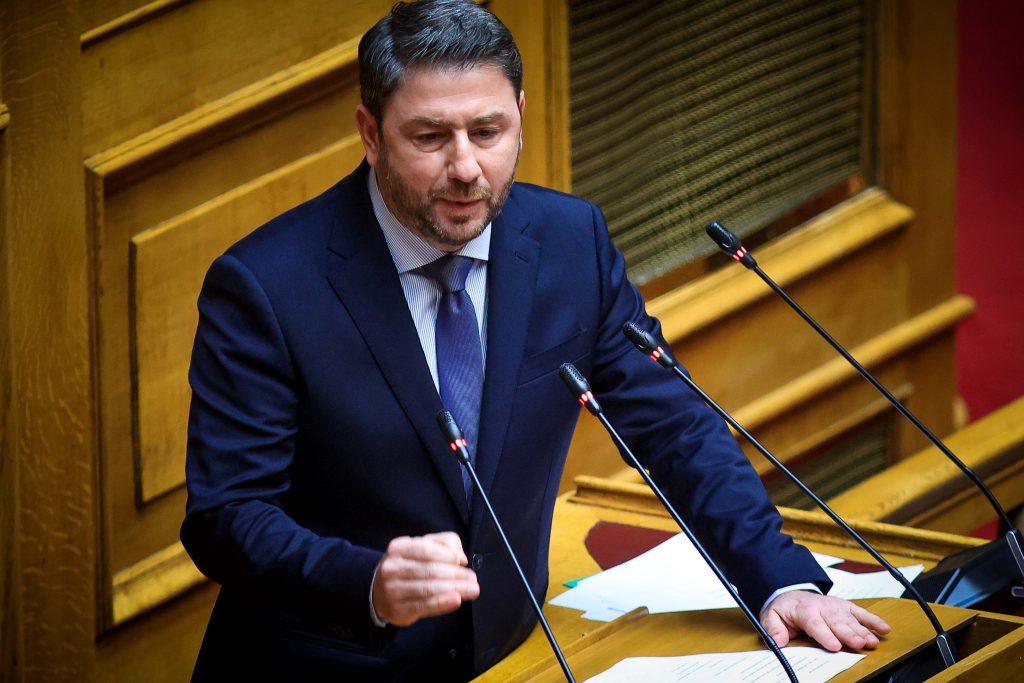Five opposition parties have reportedly requested that a summons be issued for Supreme Court Chief Prosecutor Georgia Adelini to appear before a relevant Parliamentary committee to provide testimony regarding a preliminary investigation she ordered into the explosive wire-tapping scandal.
A report emanating from an investigation into case was submitted by her deputy, Achilleas Zisis, this past week. The highlight of the report, as conveyed by the high court prosecutor, claims that no evidence emerged from the high-level judicial probe to connect the use of the notorious spyware Predator with Greece’s national intelligence agency (EYP). Adelini had ordered a preliminary and urgent judicial probe into the very prominent case.
An extraordinary session of Parliament’s institutions and transparency committee – comprised of deputies of all parties in Parliament – is scheduled for later today, with five parties – main opposition SYRIZA, PASOK, Plefsi Eleftherias, New Left and the Communist Party (KKE) – requesting that the high court prosecutor, Adelini, be issued a summons.
The prospect of requesting such an appearance and testimony by a top judicial official before a legislative committee has raised eyebrows in the country and generated debate over the principle of separation of powers.
While avoiding official statements, some Parliament sources have conveyed their objections to the prospect of a summons, pointing out that a judicial decision cannot come before the discretion of members of a Parliament committee
Under the Greek Parliament’s rules and regulations, the specific committee may summon to one of its sessions the presidents and vice-presidents of the Council of State (the highest administrative court), the Supreme Court, the Hellenic Court of Audit, and the general commissioner of administrative courts, but for “issues that deal with operational issues of the justice system, and for the purpose of increasing transparency.” The latter provision is understood to involve only “operational issues” and not judicial decisions or verdicts at any court level.

Most of the political opposition in the country has also demanded that the specific report on the wire-tapping case be conveyed to the same Parliament committee. The latter prospect also faces legal hurdles, given that the report is designated as confidential, with only those with an legal interest in its findings eligible for full access.
A high court investigation into the explosive wire-tapping scandal that gripped Greece after September 2021, which was shelved by Zisis – as least the portion involving the country’s National Intelligence Service (EYP) – instead points to private firms as legally liable.
High court prosecutor’s report
According to an announcement issued on Tuesday by Adelini’s office, she concurs with the assessments of her colleague and deputy, Achilleas Zisis, pointing instead to “sufficient signs” of wrongdoing against a handful of private firms involved with the notorious spyware, tailor-made to target cell phone communications.
The high court prosecutor’s report – conducted over two years and nine months – cites indications of wrongdoing, as it states, by the “true owners” of companies “…who, through one way or another, are involved in a case dealing with the offense of breach of privacy of communications, which however, at the time it (offense) was committed, was a misdemeanor, and therefore, the more lenient provision applies, thus the case must be directly referred to a court hearing.”
Sharp reaction by opposition
Nevertheless, the decision by the Greek supreme court prosecutor’s office to essentially shelve the investigation into the explosive wire-tap scandal and the possible involvement of the country’s National Intelligence Service (EYP) generated a firestorm of reaction by opposition political leaders over the past week.
In his first comment after a relevant announcement on Tuesday, PASOK party leader Nikos Androulakis referred to a “wire-tapping and cover-up scandal.” The socialist PASOK party has spear-headed calls for a summons of the high court prosecutor.

Androulakis is widely considered as the most prominent individual for whom a wire-tapping warrant was requested by EYP and granted by a prosecutor assigned to the latter over the past few years. His surveillance by the intelligence service was revealed in September 2021, generating a parallel furor over whether the spyware Predator was also used to monitor his – and others’ – cell phone communications.



